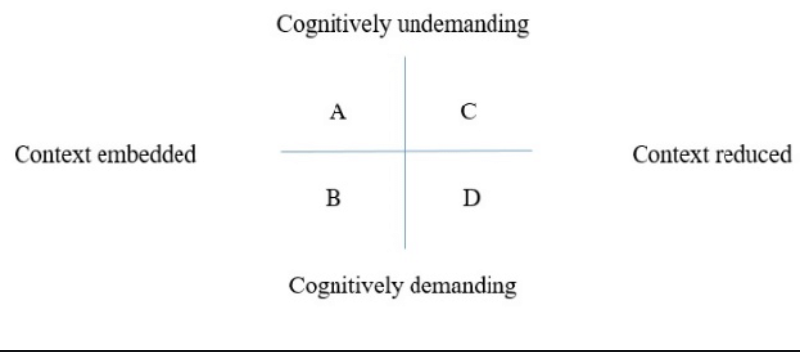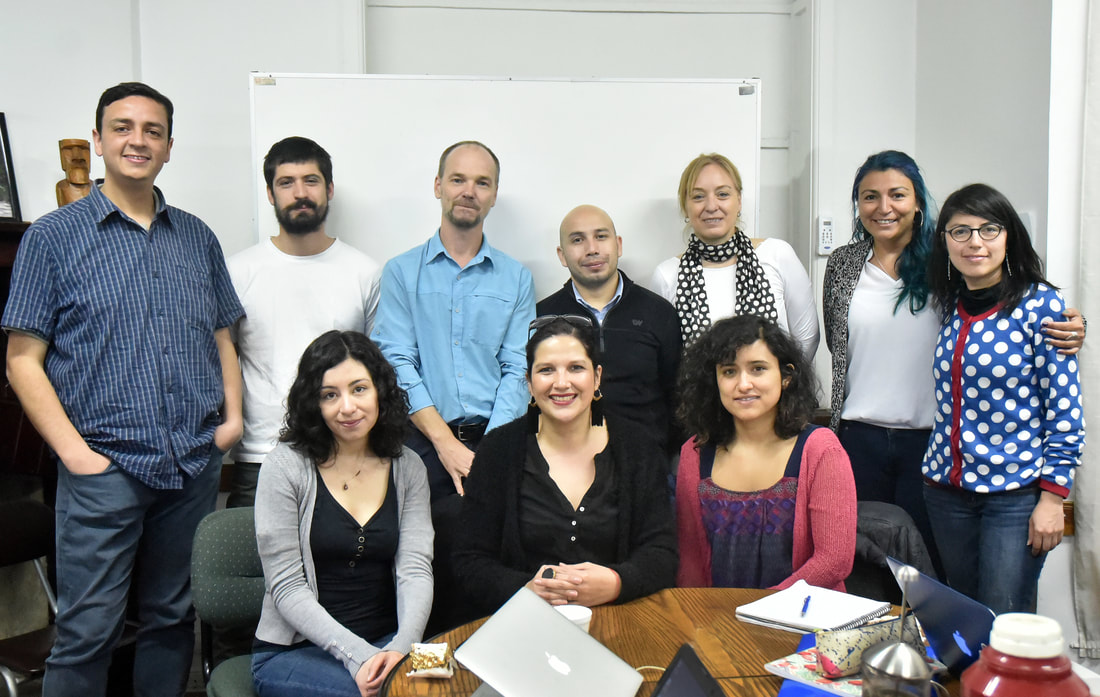A few years ago, before being promoted to full professor, I was asked to be on a panel for dual language education and development, at a national conference on language acquisition, with a group of researchers that included a very well known senior scholar of biliteracy. I was honored to have been asked, and looked forward to presenting alongside this senior scholar and my colleagues.
At the session, we all presented our work, after which we sat down for Q&A with an audience of around 80 people, many of whom were dual language practitioners. The event was video recorded. The discussion was wide-ranging, and eventually, the topic of the dual language "non-negotiable" requirement of strict language separation with no translation came up. Seeking to problematize this rigid expectation of dual language programming, I relayed the following brief story from when I was a second-year dual language teacher in Detroit...
I was a fourth grade teacher and taught both the Spanish (60%) and English (40%) sides during the school day. Because of my dual language training, I was adamant about working to maintain Spanish because of its minoritized status, and so I was very rigid about 100% use of Spanish with the students when it was Spanish time. In my class, there were many Spanishes spoken. Students were from, or had close ties to, the Dominican Republic, Puerto Rico, and México which made for many different forms of Spanish being spoken. There were also many Englishes spoken: Black English, white majoritized English, general slang, were all part of the linguistic landscape.
One day, J, a home speaker of one or more of these Englishes, and an emergent Spanish speaker, came up to me during Spanish time. He was feeling sad about something and wanted to talk to me. But in my zeal to maintain the linguistic separation, I told him to try to explain it to me in Spanish, which had the immediate effect of shutting him down.
The Incident
It was at this point in my short narrative where I said something like, "I wasn't sure what all this meant at the time..." But before I could finish my sentence, the senior scholar cut in and said, "It means you're an asshole!" laughing as they said it. The audience, as I recall, responded with tepid and awkward laughter in response. I looked down at the table, embarrassed and very surprised, not knowing how to take the comment, at which point the senior scholar clapped me a couple times on the back, as if to show us all how genial they were being.
After the Fact
That cringe-worthy exchange ended the conversation about language separation in dual language programs. This was unfortunate, because I was trying to point out that the incident with my student is what made me begin to question the wisdom of such strict language separation policies in dual language programs. (The next day I apologized to the student, in English, during Spanish time, and never made the same mistake again.) Unfortunately, at the time of the exchange with this senior scholar, I didn't have the presence of mind to process what had happened and did not finish making my point. After the session was over, we all said goodbye as if nothing had happened. Later, the video recording of the event was edited for profanity and put up on the organization's website. It provides a digital record of a memory that will stay with me as a perfect non-example of how senior scholars ought to comport themselves, no matter how comfortable they are with their status. I gleaned three takeaways from that day that will stick with me for the rest of my career.
Takeaway 1. Language Matters. This memory will not go away primarily because it was humiliating. Someone whom I respected literally called me an asshole in front of 80 peers because I was telling a story about being a young and challenged teacher. That was problematic all by itself. This senior scholar was very self assured, in front of an audience that had assembled primarily for their presentation, and their confidence showed. While there is nothing wrong with being confident, and basking in admiration from an audience, it does not mean we disregard how we use language to characterize one another.
Language mattered for my student, J as well. He needed emotional support, not second language development. My requiring the discussion to take place in Spanish was a very poor linguistic choice that affected J in that moment. In that context, I was the the elder, and like that senior scholar did with me, I used language in a way to shut down engagement, rather than promote it.
Takeaway 2. Don't be afraid of new ideas. In retrospect, I think that this scholar's visceral reaction to my story was defensive because it was clear I was talking about how we should actually be questioning the "non-negotiable" of strict language separation with no translation in dual language programs. This person is supremely devoted to the two-monolingual view of bilingualism and very traditional 20th century models of dual language. While it is pure conjecture on my part, it's my sense that this person's reaction was linked to the fact that I was suggesting to the audience that one of the bedrock ideas of dual language education might need re-examination.
This reluctance to embrace change shows up often in education generally, and in language education more specifically. A more public example would be Jim Cummins' critiques of Nelson Flores and Jonathan Rosa's (2015) thesis of "undoing appropriateness", and Dr. Flores' responses to them. I have personally based a lot of my early work on the hypothesis of linguistic interdependence, and do not understand what is so threatening about linguistic theories that move us beyond Cummins' work from the 1970s and 1980s. Cummins' indignance, like that of the other senior scholar in my own case, may be coming more from a place of insecurity, rather than intellectual critique. Researchers and practitioners in language education need to be open to expanding on existing theories, not circling the wagons in order to protect them from innovation.
Takeaway 3. Lift up, don't tear down. Related to Takeaway 2, this incident serves as a classic non-example for senior faculty interactions with junior colleagues. Now that I am moving into "senior scholar" status, I return regularly to this memory as a reminder that our job is to lift up junior colleagues, not tear each other down. We need to end models of academic competition, where darwinistic attempts are made to weed out the less competent, and aging ideas and reputations are protected by producing young scholars who mirror the questions and methods employed by the older ones (e.g., the "science of reading"). Rather than double down on these views, senior scholars should be supporting their students and junior colleagues in pressing new ideas that expand, question, and critique. To these ends, I recently found myself providing guidance through blind peer review to a group of younger researchers who were criticizing some of my earlier work investigating linguistic interdependence. Rather than fight with them, I tried to give them more details on my work that would support their justified criticisms of it. Nobody owns ideas, and it is a form of academic colonizing when senior scholars settle in to defend old positions against new thinking.
Final
I hasten to point out here that I did not experience any kind of oppression in this situation. I am abled, cis-male, white, and bilingual -- vectors of identity that are deeply and intersectionally privileged. That is, I cannot be oppressed. But I am certainly capable of being an oppressor, so holding up examples like these, and reflecting on them, can be instructive for thinking about how to disrupt antiquated notions of scholarship and hierarchical interactions that can do great harm to emerging scholars and scholarship.
I also acknowledge that this happened a few years ago and is subject to my own faulty memory and re-imaginings as time has gone by. That is, recall bias is real, and nobody's immune to it.


 RSS Feed
RSS Feed